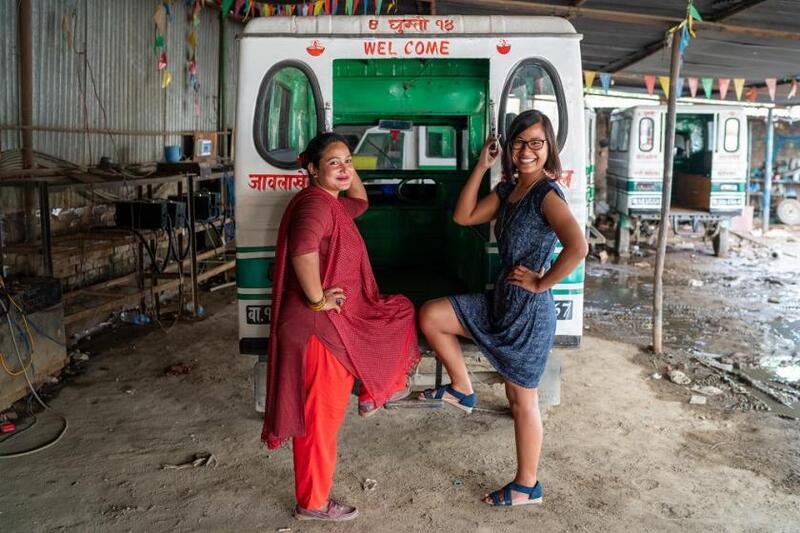
Vodafone Foundation donates €30,000 to support Mozambique over Cyclone Chido
Vodafone Foundation has pledged €30,000 to Save the Children in response to the devastation caused ...

Thirty-year-old Sonika Manandhar leads an initiative to capture big data from electric vehicles and cut emissions by making transportation efficient, while empowering women.
Since public transport in Nepal is run by individuals rather than the government, they are well known for being owned and run by women.
“Fixing the public transport system is not just about making more comfortable travel options available to both men and women at all times of day. It’s also about protecting our environment in the process,” she said.
The climate crisis came into sharp focus for Manandhar after a course in technological solutions to climate hazards. She noted, for example, that the number of private vehicles imported into Nepal surged 8 percent in 2017 alone, and that Nepal has the highest growth rate of carbon emissions per capita in South Asia, increasing faster than the world average.
Yet Nepal has enormous hydropower potential, thanks to the myriad rivers cascading down the Himalayan Mountains. Charging electric vehicles with cleaner energy is economically viable in the country.
“I had a new drive to really make a difference to try to tackle the climate crisis. But I wanted to use my skills to help ordinary people, not only technology companies,” she said.
Public transport seemed an ideal entry point to do this, and on quitting her job, Manandhar set up Green Energy Mobility, a micro-impact investing platform which aims to accelerate electric vehicle adoption.
The network aims to provide three key solutions; first, to make electric transport a safe, clean and affordable option for commuters in Kathmandu and a more viable income earner for safa-tempo drives, mostly women.
Secondly, it aims to help upgrading safa-tempo – the small electric three-wheeler bus – through buying new lithium ion batteries which last a full day. Safa-tempo batteries need frequent charging, resulting in lost business during peak commuting hours. The system connects drivers with banks, helping them access loans.
And thirdly, it is meant to gather data through the platform to predict and cut traffic congestion and in the long-term, help to plan more efficient cities. This is done using a system of digital tokens, bought from approved vendors. The tokens allow digital transaction of payments and tracking of data.
In future, the platform will have a booking app, connecting safa-tempo drivers with events, so that clean and reliable transport can be scheduled and guaranteed to party-goers—especially women—late at night.
“We’re exploring other ways to link green habits and incentivize people to use green services, including people who want to drive a more sustainable future but fly a lot or have a big carbon footprint.”
“In five years, my vision is that at least 20 percent of public transport in Nepal will be electric. I really believe we can create a better future, and we must all do our part to drive it.”
Vodafone Foundation has pledged €30,000 to Save the Children in response to the devastation caused ...
The European Commission has adopted a decision to disburse €1 billion in loans to Egypt following ...
Opening the Helwan University clinic brings the total number of Safe Women Clinics to 48 ...


اترك تعليقا